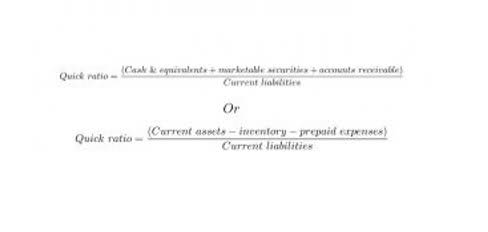

Such categorization is important for financial reporting, as it allows stakeholders to assess a company’s immediate liquidity and its ability to meet short-term financial obligations. Despite the fairly low risk, cash equivalents can receive favorable yields. Furthermore, some money market funds may be tax-exempt or kept in tax-favorable income summary accounts.
2: Cash and Cash Equivalents
In the spirit of reconciliation, http://sulh.info.az/wordpress/2024/08/16/chart-of-accounts-example-format-structured/ Weel acknowledges and pays respect to the Traditional Custodians of the lands across Australia and their enduring connection to land, waters and community. We recognise the Gadigal people of the Eora Nation as the holders of Country where our head office stands, and we honour their Elders past and present. We also acknowledge Māori as tangata whenua and Treaty partners in Aotearoa New Zealand, affirming our commitment to the principles of Te Tiriti o Waitangi. Expert tips to remove time-wasters and bottlenecks to close the books on day 1. If you’re like most people, you carry a debit card, bills, and spare change. While debit cards are the most common, we don’t refer to them as “cash.” Instead, we only call bills and spare change as cash.

Management

Be that as it may, it very well may be useful to keep paper slips too, along with receipts from the purchases or payments (if conceivable). Petty cash is the money that a business or company keeps close by to make small payments, purchases, and repayments. Either routine or unforeseen, these are transactions for which composing a check or utilizing a credit card is unrealistic or badly designed. A petty cashier may be assigned to issue the check to fund the petty cash cabinet and make the suitable accounting passages.

Financial Literacy Matters: Here’s How to Boost Yours
- Wave goodbye to the woes of manual record-keeping by utilizing accounting software for petty cash management.
- Its primary purpose is to handle transactions too small or inconvenient to process through checks or electronic transfers.
- Cash equivalents are often utilized as a short-term investment option for cash that may not be required for a short period but must still be readily accessible.
- Either routine or unforeseen, these are transactions for which composing a check or utilizing a credit card is unrealistic or badly designed.
- It can be in the form of actual money, like amounts you haven’t yet deposited in the bank or smaller bills and coins that you keep in the cash register to make change for customers.
Cash held in financial institutions carries credit risk, while fixed-income instruments involve interest rate risk. As a result, it’s necessary to examine the company’s accounting procedures to determine what items are reflected in cash and cash equivalents. is petty cash a cash equivalent Holding cash and cash equivalents presents companies with the finances they need to make strategic investments or acquisitions to help them develop and boost shareholder value.
Money Market Account
- Petty cash shines brightest when used for small, unforeseen expenses that keep the workplace humming along.
- The Company classifies its marketable equity securities, including mutual funds, as either short term or long term based on the nature of each security and its availability for use in current operations.
- If you’ve ever wondered what CCE or cash equivalents are, you’ve come to the right place.
- For companies using ASPE, equities investments are usually not reported as cash equivalents.
- Discover how Weel can help your business streamline processes, enhance control, and improve financial accuracy.
It saves the problem of repaying individuals or anticipating that they should pay out-of-pocket for business related things. “Petty cash” and “cash close by” sound a great deal the same, and they do overlap. Cash equivalents can be reported at their fair value, together with cash on the balance sheet. Fair value will be their cost at acquisition plus accrued interest to the date of the balance sheet. Certificates of Deposits (CD’s) are usually recorded as short-term investments.